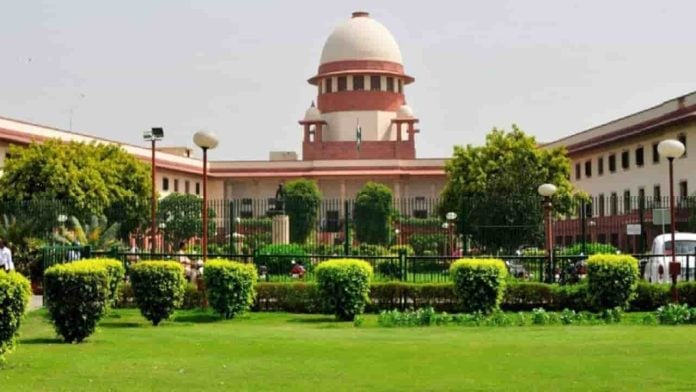A petition challenging the Advocate-on-Record (AoR) system by which cases are filed in the apex court has been dismissed by the Top Court today.
The Bench of Justice KM Joseph and Justice Hrishikesh Roy have rejected the plea which questioned Rule 1 (b), Rule 5 & Rule 7 (c) of Order IV of the Supreme Court Rules.
The plea said that the above rules were unreasonable, discriminatory, oppressive, absolute in nature.
Advocate Nandini Sharma, who represents petitioner said that the system AoR creates, is a situation where advocates who have a law degree and have passed the All India Bar Examination (AIBE) are prohibited from filing petitions without the AoR’s signature, and comes with a heavy fees to the AoR.
The plea also said that, the absolute nature of the Supreme Court Rules, 2013 is benefitting only a special class of advocates , having an exclusive jurisdiction, and creating an elite group at the exploitation of the Litigants & their Nominated Counsels.
The plea also stated that only 20 percent of lawyers who write the AoR exam pass, as a result of which most lawyers are denied practice in the Supreme Court.
The plea point that the aggrieved parties from all over India are forced to file petitions either in-person or exploited to hire only limited numbers of rich advocates (AORs), who can afford offices & registered clerk in Delhi within 16 km radius of the Hon’ble Supreme Court.
It added that with such practises justice becomes a difficult goal to parties from distant India, and a costly affair, too.
The petitioner advocate said that in her case, an AoR had taken away the original case file of her client from the Supreme Court Registry, and has been keeping it as security for extortion of more money.
The Counsel has requested the Court for:
- Declaring Rule 1 (b) & Rule 5 & Rule 7 (c) of Order IV of the Supreme Court Rules, 2013 to be in contravention of Article 14 & Article 19 (1) (g) of the Constitution of India.
- for issuing directions to Apex Court Registrar for keeping the AoR entrance examinations aside.
- To prohibit the Registrar from creating an exclusive jurisdiction for AoRs while denying practice rights to all the advocates.
- To issue directions to Bar Council of India and Law Ministry to promulgate new laws or amend the Advocates Act, 1961 for formulating universal practice rules for advocates
- Issuing directions to the respondents for making case filing procedures approachable, simple and easy in place of keeping case files under the absolutism of AOR system.
- For issuing directions to the Registrar for granting financial assistance to advocates for maintaining an office and a registered clerk in Delhi, within 16 km radius of the Supreme Court.


